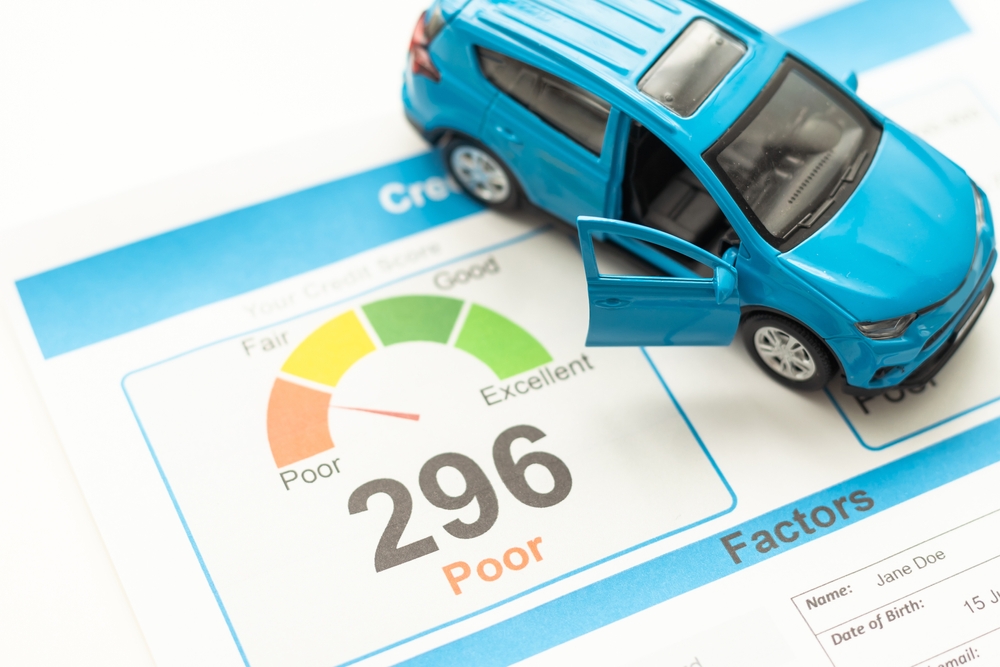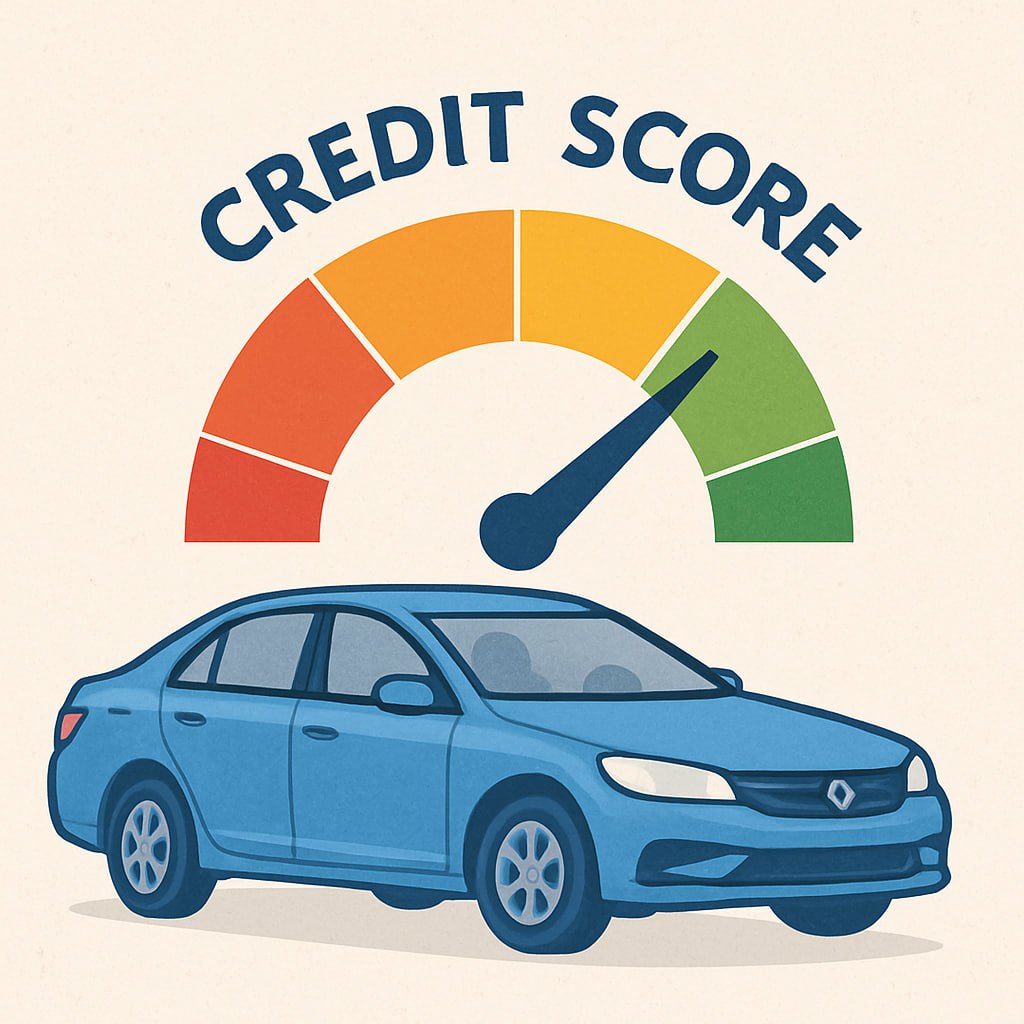
How to Boost Your Car Loan Credit Score Before Applying aka The Role of Credit Scores in Securing Car Loans
- November 25, 2025
- Remy Anderson
- Car Finance
Estimated reading time: 9 minutes
Summary
- A higher Car loan credit score increases your chances of loan approval and better interest rates.
- Lenders assess credit scores, income stability, and existing debts during car loan applications.
- To improve your Car loan credit score, pay bills on time, reduce credit card balances, and avoid hard credit checks.
- Check credit reports from all major agencies, fix errors, and understand your credit score range before applying.
- Get pre-approved and save for a larger down payment to boost your car loan approval odds.
Table of contents
- Credit scores and Car Loans
- What Lenders Look for in a Car Loan Application
- How to Prepare Your Credit Profile for Approval
- 8 Proven Ways to Improve Your Credit Score Fast
- 1. Pay bills on time every month before Car loan credit score
- 2. Reduce credit card balances for a Car loan credit score
- 3. Avoid hard credit checks before applying
- 4. Clear small debts completely before a Car loan credit score
- 5. Use Experian Boost or similar tools
- 6. Avoid payday loans or high-risk credit
- 7. Build a mix of credit types
- 8. Use a car loan credit score calculator to track progress
- Smart Moves Before You Apply for a Car Loan
- Conclusion
Credit scores and Car Loans
Your car loan credit score can make or break your financing application. Did you know that?
Credit scores in the UK range from 300 to 999, based on the credit reference agency. This three-digit number shapes your car buying experience. A higher credit score increases your chances of getting approved for loans. It also affects the interest rates and terms that lenders offer you.
Lenders check your credit score to measure risk during car loan applications. Higher scores mean lower risk, which leads to better approval chances. Borrowers who have better scores get lower interest rates because lenders trust them more.
Your credit report records a hard inquiry each time you apply for credit. Multiple applications can hurt your approval chances if you already have a low score, so you need to time them well.
You can take several smart steps to boost your score before submitting your car loan application. Your credit rating depends by a lot on your payment history. Understanding what creates the best car loan credit score helps you save thousands in interest payments.
This piece will give you insider tips to enhance your credit profile. You’ll learn what lenders want and how to position yourself for the best possible car loan approval.
What Lenders Look for in a Car Loan Application
Lenders look at a few important factors to see if you can get a loan and what terms they can give you. A good application comes from understanding these rules clearly.
Credit score and credit history
Your credit score helps lenders assess risk. A score of 661 or above falls into the “prime” category and gives you better chances of approval with good terms. Your credit history shows how well you’ve handled past loans.
Higher interest rates may be charged if you have missed payments or defaults. Lenders view these as red flags.
Income and employment stability on Car loan credit score
Lenders need you to earn between £1,000 and £1,500 per month after tax. Meeting this income level doesn’t guarantee you’ll get approved.
A stable job history makes lenders more confident. Job-hopping raises red flags because it might lead to gaps in your income.
Affordability and existing debts
Your debt-to-income (DTI) ratio shows lenders if you can handle more loan payments. This number compares what you owe each month to what you earn. Lenders like to see a DTI below 36%, though some will work with ratios up to 45-50%.
First, add up all your monthly bills, including your car loan and insurance. Then, divide that total by your monthly income before taxes.
Proof of identity and residence with Car loan credit score
You’ll need these documents ready:
- Valid UK driving license (expected for car finance applications)
- Proof of address (utility bills dated within 90 days)
- Bank statements (showing regular income)
- Employment verification (recent payslips or employer letters)
Note that each lender’s requirements might differ, but they all want to verify your identity and make sure you can afford the loan.
How to Prepare Your Credit Profile for Approval
Your chances of getting approved for car finance improve when you prepare your credit profile ahead of time. A few steps today can prevent disappointment down the road.
Review your credit report from all agencies and Car loan credit score
The three main credit reference agencies in the UK are Experian, Equifax, and TransUnion. Each one has its own credit record for you.
Lenders may use any of these agencies. Therefore, you should check all three reports each year. You can access your reports for free through these services:
- TransUnion: Available through MoneySavingExpert Credit Club
- Experian: Via their app or free 30-day CreditExpert trial
- Equifax: Access through Clearscore
Your credit score stays unchanged when you check it yourself. You should check these reports before applying for car finance. This will help you find any problems in advance that may worry lenders.
Fix mistakes and outdated information
You have the right to dispute any errors you find in your report without paying a fee. The best way to fix this is to talk to the credit bureau and the business that gave the wrong information.
Here’s what to do when you dispute:
- Explain clearly what’s wrong and why
- Include copies of supporting documents
- Keep records of everything you send
Credit bureaus must look into disputes within 30 days. Small mistakes can cause issues with your application. This is true for wrong addresses on old accounts or old financial links to past partners.
Understand your best car loan credit score range
Every credit agency has its own way of scoring. While no single “best” credit score exists for car finance, better scores help you get lower interest rates. Experian rates scores above 961 as “excellent,” which gives you access to the best deals available.
Lenders do not just focus on your credit score. They also check your whole credit profile. Bad marks like missed payments, defaults, or CCJs need time to fade. Your job helps people understand chances of getting approved and what interest rates to expect.
8 Proven Ways to Improve Your Credit Score Fast

Ready to get a better credit score for your car loan? Here are eight proven strategies that can help you get approved with better rates.
1. Pay bills on time every month before Car loan credit score
Your payment history makes up about 35% of your credit score. The best way to avoid missing deadlines is to set up direct debits for all your regular payments. Your score could take a big hit from even a single missed payment.
2. Reduce credit card balances for a Car loan credit score
Keep your credit use below 30% of your available limit. People with the best credit scores usually keep their usage under 10%, and you should try to do the same.
3. Avoid hard credit checks before applying
Multiple credit searches in a short time can hurt your score. It’s a good idea to limit yourself to sending two or three applications every few months.
4. Clear small debts completely before a Car loan credit score
Lenders like to see you managing your finances well, so pay off existing debts before applying. Start with your high-interest debt to save more money.
5. Use Experian Boost or similar tools
Your score can improve quickly with Experian Boost. It gives you credit for regular payments that usually don’t help your credit score. This includes things like Council Tax and streaming subscriptions. Most users see their scores rise by about 13 points.
6. Avoid payday loans or high-risk credit
Stay away from expensive loans that charge 20% or more. Car loan providers see these as red flags that suggest money troubles.
7. Build a mix of credit types
Your credit mix accounts for 10% of your FICO score. Show lenders you can handle money responsibly by maintaining both revolving credit (cards) and instalment loans (mortgages, personal loans).
8. Use a car loan credit score calculator to track progress
Keep an eye on your progress with free tools from credit agencies. These tools help you see your progress. They show how your score gets better when you use these strategies.
Smart Moves Before You Apply for a Car Loan
You’ve improved your credit score. Now it’s time to make strategic moves that maximise your car loan approval chances.
Get pre-approved to understand your options
Getting pre-approval through a lender before visiting dealerships makes sense. The process involves a soft credit check that won’t affect your car loan credit score.
Getting pre-approved helps you know your budget. It also gives you better chances when talking to dealers. This also helps you understand the interest rates and loan terms you can get.
Save for a larger down payment
You should aim for at least 20% deposit on new vehicles and 10% on used cars.
A big deposit lowers your loan amount and may help you get lower interest rates. This method lowers your monthly payments and shows lenders that you are good with money.
Compare lenders and interest rates
Interest rates vary by a lot between lenders. Loan eligibility calculators help you see which lenders might accept you. Your best option is to compare offers from multiple sources including banks and credit unions. Note that longer loan terms mean lower monthly payments but you’ll pay more interest over time.
Time your application strategically
Try not to apply for many loans at once. Each hard credit check can lower your score for a short time. Experts say that waiting a few months between credit applications can help keep your car loan credit score high for approval.
Conclusion
Getting a good car loan ends up being all about preparation and timing. Your credit score for car loan opens the door to better interest rates and approval odds. Taking time to boost your score before applying can save you thousands of pounds throughout your loan term.
Lenders get into your complete financial picture. They consider your income stability, any debts you have, and your overall creditworthiness, not just your credit score. You need to look at your credit reports from all three main agencies. If you find any mistakes or old information, fix them immediately.
The eight strategies listed above are the basics for improving your credit score quickly. Paying bills on time and reducing credit card balances will give you the fastest results. It also shows financial responsibility to potential lenders if you avoid hard credit checks and clear small debts.
The right timing makes a huge difference in car financing. Getting pre-approved first gives you leverage at the dealership. A larger down payment proves to lenders you mean business and reduces your needed loan amount.
Your car loan doesn’t have to be stressful. These insider tips help you handle the process with confidence. Begin improving your credit today. Soon, you could drive away in a new car with a loan that suits your budget and goals.
